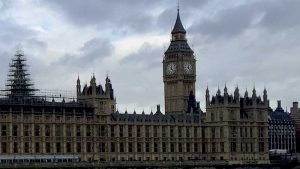
The Spring Statement provided confirmation that the uncertainty over Brexit has hit business investment and growth, with GDP growth predictions decreasing from 1.6% at the budget to 1.2%. Business investment and growth are forecast to start growing again from next year with GDP growth of 1.4% for FY20, then 1.6% for FY21, FY22 and FY23
- The Chancellor continued his theme of reassuring the world that the UK is open and attractive for business, with:
- Announcements on spending on his favourite themes of productivity, infrastructure, skills and technology.
- Improvements to immigration rules, including removing PhD level occupations from the cap on high-skilled visas.
- Reforms to the Apprenticeship Levy that were announced at the budget, to introduce more flexibility and better support smaller businesses will be brought forward a year, and will now take place from 1 April 2019.
- There will be consultations on a series of measures designed to promote the UK’s shift to a clean economy. These include:
- Helping businesses improve the way they use energy – a call for evidence on a Business Energy Efficiency Scheme.
- A review of the economics of biodiversity – with the aim of introducing mandatory net gains for biodiversity on any new developments in England.
- Reducing our dependence on burning natural gas to heat homes.
- Making Tax Digital (MTD) – confirmation that there will be a light touch approach to penalties in the first year of implementation. Where businesses are doing their best to comply, no filing or record keeping penalties will be issued. The focus will be on supporting businesses to transition. The government will therefore not be mandating MTD for any new taxes or businesses in 2020.
- Structures and Buildings Allowance– draft legislation has now been published for comment. Summaries of responses to the original technical note will be released shortly.
- Enterprise Investment Scheme (EIS) approved funds guidelines– Draft guidelines will be released for comment alongside draft legislation. The document will contain guidelines stating HMRC’s proposed policy and practice for approving funds. The legislation will include powers for HMRC to set appropriate conditions and approve funds.
- CGT private residence relief– A consultation will be launched on the changes announced at Budget 2018 to lettings relief and the final period exemption, which extend private residence relief in capital gains tax.
- Digital Economy – Following the announcement of the Digital Services Tax at the Budget, the Chancellor welcomed the recent review into competition in the Digital economy, which called for a shake-up of competition rules to counter increasing dominance by tech giants. The Government plans to respond later this year.
The government is set to continue its fight against tax avoidance, with new consultations launched on:
-
- Tackling tax avoidance, evasion and other forms of non-compliance.
- Offshore tax compliance strategy: No Safe Havens 2019.
- Preventing abuse of the R&D tax relief for small- or medium-sized enterprises (SMEs).
Further consultations will look at simplifying the tax system:
- VAT Partial Exemption and Capital Goods Scheme: Simplification– A call for evidence on potential simplification and improvement of the VAT Partial Exemption regime and the Capital Goods Scheme – ensuring they are as simple and efficient for taxpayers as possible
- Social Investment Tax Relief (SITR)– A call for evidence on the use of the SITR scheme to date, including why it has been used less than anticipated and what impact it has had on access to finance for social enterprises. [N.B. This may be the first step to repealing this relief if it is not being used]

This blog first appeared on the Menzies site here and is reproduced with permission

























In his Economic statement on 8 July 2020, Chancellor Rishi Sunak highlighted those property transactions fell by more than 50% in May, while house prices fell for the first time in eight years. Therefore, to help boost the housing market, he announced that there will be a temporary reduction in stamp duty land tax (SDLT) in England and Northern Ireland. The Scottish and Welsh Governments quickly followed suit announcing reductions in Land and Buildings Transaction Tax (LBTT) and Land Transaction Tax (LTT) respectively.